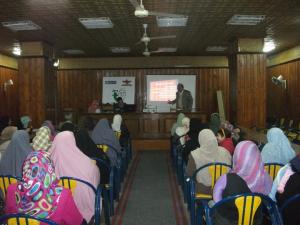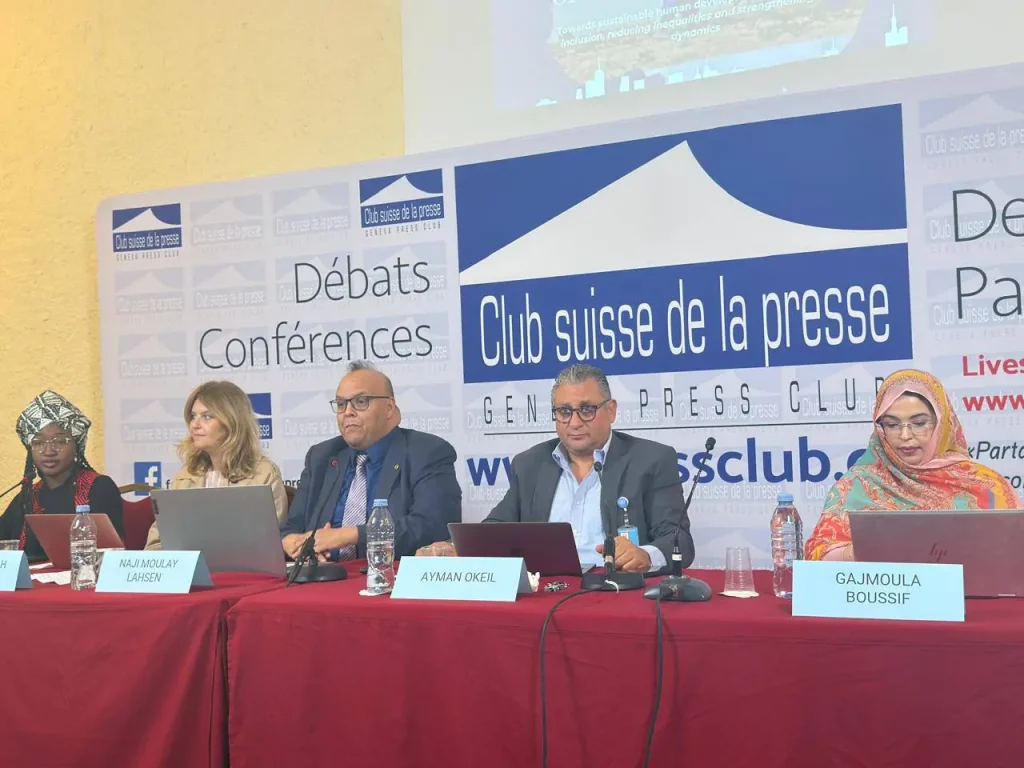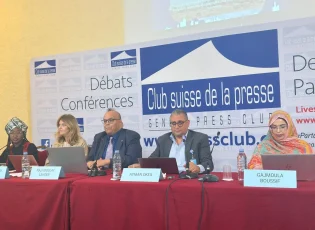“If the people one day wanted life, fate must respond ... Night must pass, and the restriction must be broken.” These verses by the Tunisian poet Abu Qasim Chebbi were said by one of the women participating in the eighth discussion session with a project of arrival, then she added a journey of a thousand miles that begins with a step and the step was the January 25 revolution And she went on to say that after the new conditions that the country is supervising, women have a greater opportunity to participate due to efforts to combat corruption and abuse against women. Where the Maat Foundation for Peace, Development and Human Rights, within the framework of the project to empower women to govern in the Egyptian village, "Wusoul" held a discussion session in the Zagazig Center and a round table in the Al-Saff Center. The project is implemented in cooperation between Maat Foundation and the Australian Agency for International Development (AusAID), and the project seeks to enhance the participation of women in local governance in the Egyptian village, by building the capacities of women to run in local elections, raising awareness of the importance of women's participation in local governance mechanisms and building effective community mechanisms. Supportive of fair representation of women in local, elected popular councils. The eighth discussion session was held in cooperation with the Al-Amal Association for Social Welfare in the Workers ’Union Hall in Zagazig, Sharkia Governorate, on Thursday February 24, 2011, in which 50 women and girls participated, and it addressed a number of problems related to the participation of women, which were present in the previous phase, namely, electoral fraud in favor of men, as well as favoritism Mediation and the poor qualification of women, just as the participation of women in many decision-making centers has become a "number perfection", just as the traditional leaderships that are filled with most decision-making centers in Egypt prevent new competent leaders from reaching higher jobs. Most of the participants also raised the most important obstacle, which can be considered the most important problem faced by women in Egyptian society, namely the responsibility of the family and the burdens of living. The discussion session resulted in a number of recommendations put forward by women in the context of current events and what they would like in the next stage. One of the most important was changing the laws on political participation, the most important of which is the Law on the Exercise of Political Rights and the abolition of all legal articles that stipulate abuse against women and the establishment of constitutional guarantees that guarantee political participation, and activate The role of unions and student unions, which can be considered a first year of women's participation, work to increase the percentage of women’s representation in the boards of directors of those federations and unions, and develop the motives of civil society organizations to open a dialogue with women and girls to make them aware of the importance of their political rights. They also called on these societies to form support and advice committees for women not only. Election times but at all times and assisting them in taking legal action in the event of a violation or discrimination against them. The Maat Foundation, in cooperation with the Yalla Nishare Association for Social Development, held the fourth round table in the project on Saturday, January 5, 2011, at the Al-Desmi village youth center in the Al-Saf center in Helwan Governorate, in which more than 30 popular and community leaders and rural women participated in which the participants raised some problems that they worked hard on. Suggest a number of solutions. One of the most important problems raised by leaders, especially women, was that women lack knowledge and motivation to participate because many of them lose any incentive to participate, considering that their voices are not influential or have no tangible effect, and some participants have disclosed their plan to create national ID cards for many women who are present in a large proportion in society The classroom, to motivate them to participate in the upcoming elections, and after the citizens were facilitated, and the vote was announced with the national ID card. Participants also raised another problem, namely, activating the role of rural women leaders in this regard through conducting awareness seminars and home visits for women and motivating them to participate in the elections and eradicating illiteracy for women who suffer from orthographic illiteracy, i.e. reading and writing illiteracy, then eradicating their political illiteracy. The participants suggested including a program on women's awareness in the plan of the People’s Committee for the Desmi Village, which was formed in the wake of recent events that occurred in Egypt and mainly aimed at fighting corruption and taking care of citizens' interests, including supporting women's rights and solving societal problems.
shortlink: https://maatpeace.org/en/?p=30578












